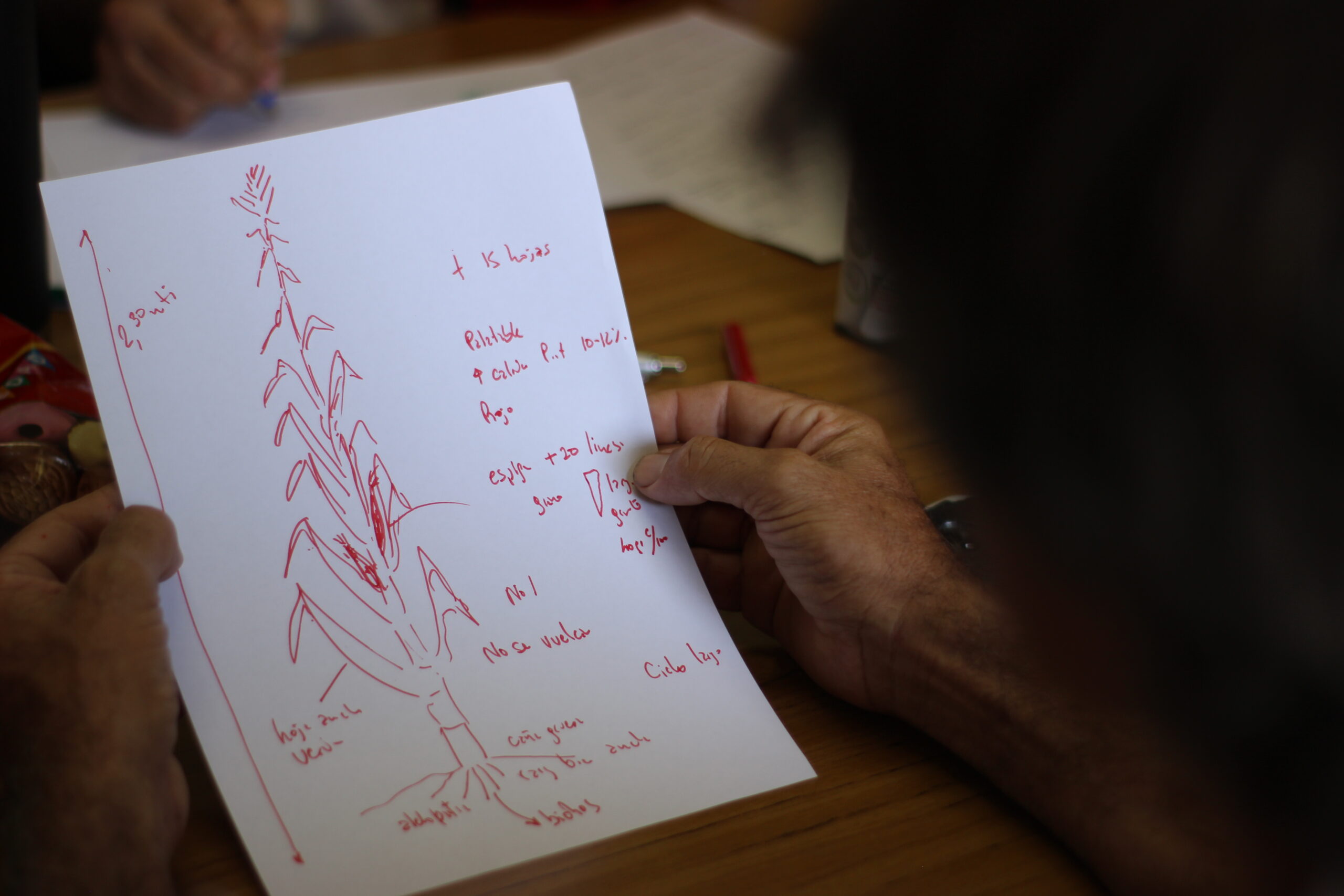In this episode, Future Natures speaks with Almendra Cremaschi who is trained as an Agronomist from the National University of La Plata in Argentina and is currently a PhD candidate from the same University. She is a founder of Bioleft – an interdisciplinary team of researchers which has devised an open-source system for seeds.
In this conversation, we discuss seeds and the multiple forms of enclosure that have affected the seed sovereignty of farmers in Argentina and across the world.
This interview explores the way in which agri-capitalism has led to the appropriation of biocultural biodiversity through property regulations, biopiracy, and epistemicide- concepts which Almendra unpacks in great depth.
Almendra takes us through the history of different periods of enclosure of seeds, and how strategies of appropriation and privatisation of the knowledge around seed production have been reinvented in recent decades.
Almendra discusses the role of ‘situated knowledge’ in Argentina. She illustrates how Bioleft facilitates new ways of producing and sharing knowledge around seeds. We learn about the role of the imagination and art-based methods for envisioning the kinds of seeds needed for a more desirable food system for small-scale food growers in Argentina.
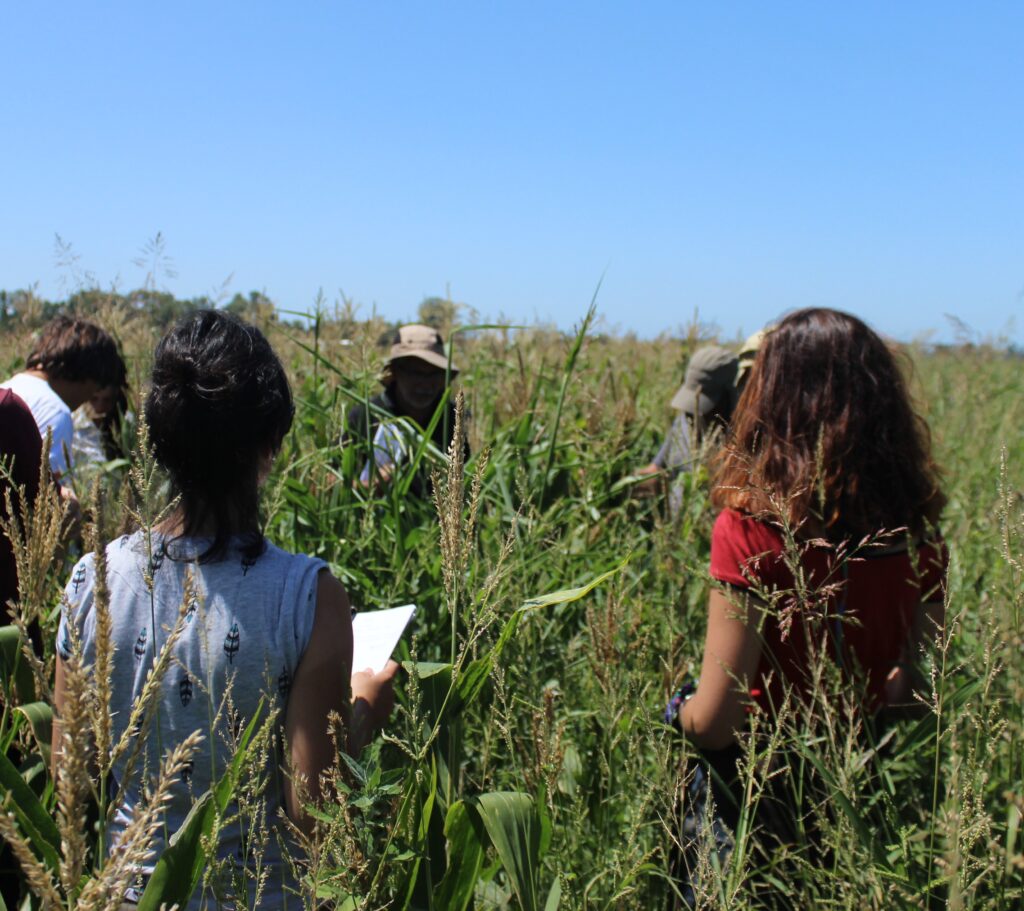
Through art, Almendra explains the kinds of powerful collaborations that can happen when farmer and public sector breeders, extension workers and social scientists work together.
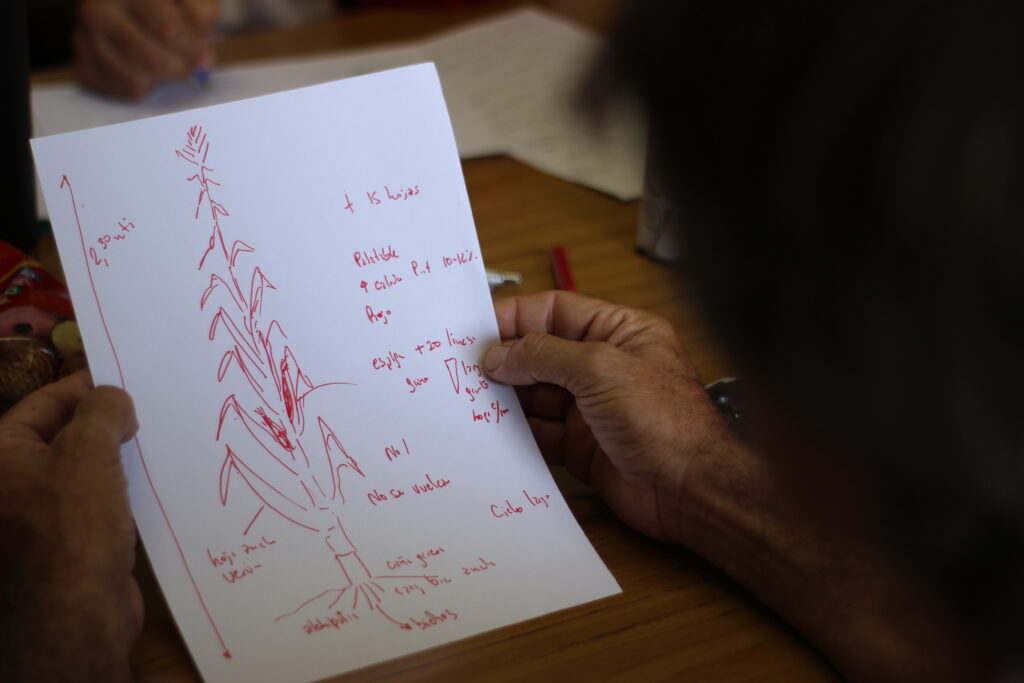
The concept of Chi’xi is also unraveled, a term which emerged with Bolivian Aymara scholar Silvia Rivera Cusicanqui which has had some influence in Almendra’s work.
Chi’xi refers to the coexistence of plural realities, and helps challenge the colonial mentality held in neoliberal capitalist food systems. Applied to the seed commons, Chi’xi helps to critique the domination of an ideology of control over seeds, particularly the patenting of seed reproduction processes.
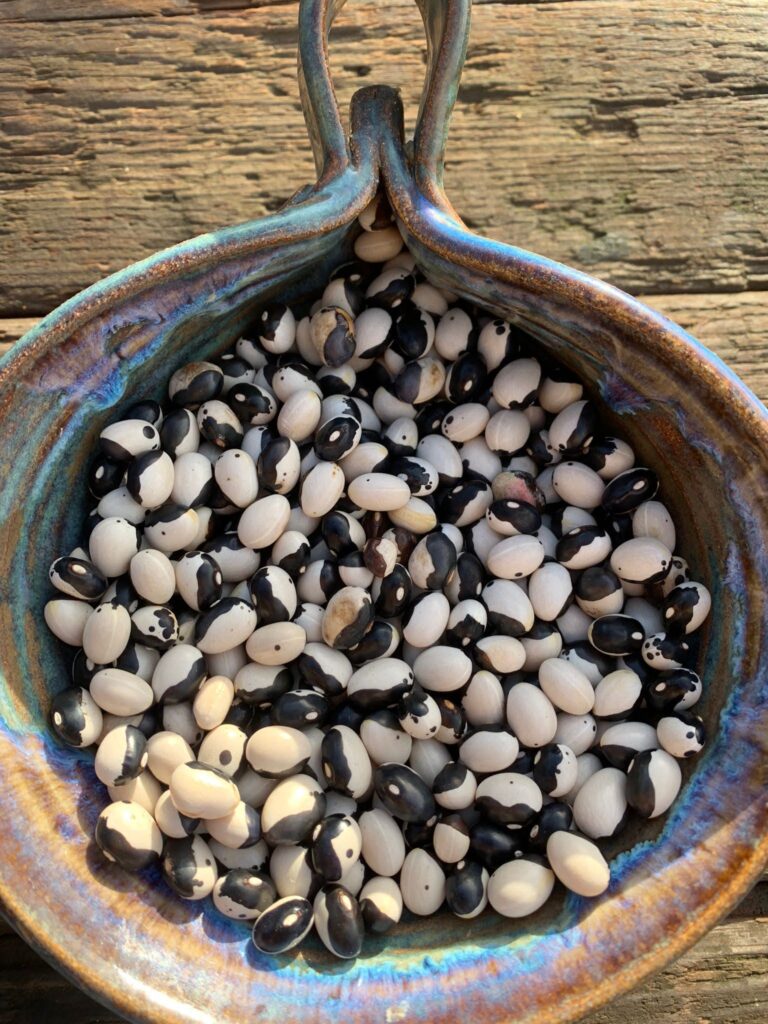
In this way we learn about the importance of plural knowledges around seeds, and how these are important for recovering and maintaining a seed commons in the face of corporate capture.
Farmers’ knowledge in the seed commons is a thread that runs throughout this conversation. Situated knowledge is often stigmatised in modern industrial agriculture as something ‘traditional’; a relic of the past. Almendra explains how the ideas spread during the Green Revolution led to farmers’ knowledge being devalued as a mere obstacle to the expansion and modernisation of globalised industrial agriculture.
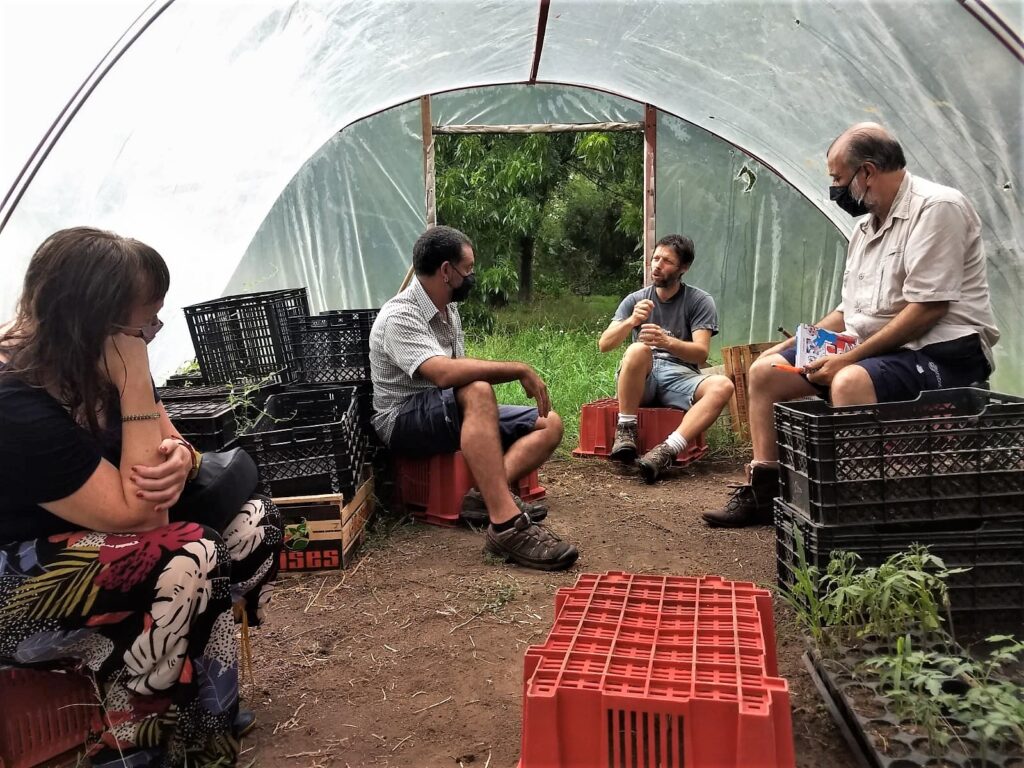
Almendra challenges the narrative that places blind faith in ‘modern’ technology, and leads us to think about already-existing technologies by way of ‘situated knowledges‘ that continue to be undervalued, appropriated, and marginalised today.
We also discuss kinship, referring to the work of Donna Haraway and Ursula Le Guin, and its role in reconnecting and maintaining human and nonhuman relationships grown through agroecology.

References mentioned in the interview:
- The case of Canadian farmer Percy Schmeiser and Monsanto – ‘David versus Monsanto’, 2009 (film)
- Un Mundo Chi’xi es Posible, 2016. Silvia Rivera Cusicanqui. (PDF en Español)
- Bioleft seed catalogue (YouTube video)
- ‘Food Phreaking’ magazine Issue #04: Seeds (PDF)
- Diverse Seeds – Shared Practices: Conceptualizing Seed Commons. International Journal of the Commons
- ‘Vandana Shiva: ‘Gandhi of Grain’ featured in documentary’, 2022. DW.
- The creative use of ‘Avatars’ for farmers to explore their sense of agency (as mentioned in Ruizpalacios, B., Charli-Joseph, L., Eakin, H., Siqueiros-García, J.M., Manuel-Navarrete, D., Shelton, R. (2019). The Transformation Lab-oratory of the Social-Ecological System of Xochimilco, Mexico City: Description of the Process and Methodological Guide. Mexico City, Mexico)
- Van Zwanenberg, P., Cremaschi, A., Obaya, M., Marin, A. and Lowenstein, V., 2018. Seeking unconventional alliances and bridging innovations in spaces for transformative change. Ecology and Society, 23(3)
- Cremaschi, A. and van Zwanenberg, P., 2020. Bioleft: open-source seeds for low-input farming systems. Journal of Fair Trade, 2(1), pp.39-43 (PDF)
- What can seed biology teach us about shared survival. MOLD. 2022
